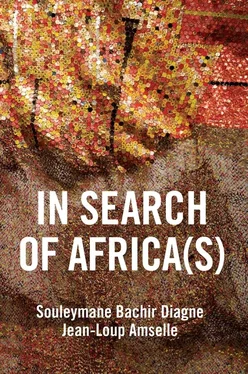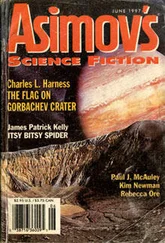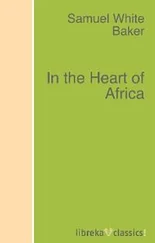Title: In search of Africa(s) : universalism and decolonial thought / Souleymane Bachir Diagne and Jean-Loup Amselle ; translated by Andrew Brown.
Other titles: En quête de Afrique(s). English
Description: Cambridge, UK ; Medford, MA : Polity, 2020. | “First published in French as En quête de Afrique(s): universalisme et pensée de coloniale, © Albin Michel, 2018”--title page verso. | Summary: “This important book by two leading scholars of Africa examines the relationship between politics, religion and identity in contemporary culture and the possibility of a new universalism. Erudite, wide-ranging and eminently readable, it will be of great interests to students, scholars, and general readers alike”--Provided by publisher.
Identifiers: LCCN 2019029692 (print) | LCCN 2019029693 (ebook) | ISBN 9781509540280 (hardback) | ISBN 9781509540297 (paperback) | ISBN 9781509540303 (epub)
Subjects: LCSH: Postcolonialism--Africa. | Postcolonialism--Philosophy. | Decolonization--Africa. | Cultural relations. | Africa--Relations--Western countries. | Western countries--Relations--Africa.
Classification: LCC JV246 .D5313 2020 (print) | LCC JV246 (ebook) | DDC 320.01--dc23
LC record available at https://lccn.loc.gov/2019029692LC ebook record available at https://lccn.loc.gov/2019029693
The publisher has used its best endeavours to ensure that the URLs for external websites referred to in this book are correct and active at the time of going to press. However, the publisher has no responsibility for the websites and can make no guarantee that a site will remain live or that the content is or will remain appropriate.
Every effort has been made to trace all copyright holders, but if any have been overlooked the publisher will be pleased to include any necessary credits in any subsequent reprint or edition.
For further information on Polity, visit our website: politybooks.com
Foreword In focus: a comparative reading of Souleymane Bachir Diagne and Jean-Loup Amselle
Anthony Mangeon
Let us warn the reader right away: while browsing the pages of these discussions, he or she will often see double, and for many reasons. Firstly, the two interlocutors, Souleymane Bachir Diagne and Jean-Loup Amselle, often look at the issues they are addressing from different angles, and are not always concerned to reach complete agreement; secondly, they frequently take up views that they have developed elsewhere, in their previous books and articles; and, finally, their discussions regularly juxtapose and assess two theoretical and critical currents – postcolonial studies and decolonial thinking – whose outlines, and, above all, concrete differences, are sometimes difficult to discern.
The preliminary remarks in my foreword are not an attempt to replace this ‘seeing double’ with a synthetic image, nor do they aim to show how, as they put forward their arguments, our two authors often glance sideways towards other points of view. I will merely note the framework in which postcolonial and/or decolonial studies have grown and developed, and explain that, while they follow their own paths, Souleymane Bachir Diagne and Jean-Loup Amselle are ultimately quite close to such studies; this will make it easier to see what brings them closer to each other, and this book of discussions may help the reader to develop not an overview of all the questions tackled here, but simply a nuanced point of view that goes beyond traditional black and white distinctions.
Looking through cultural spectacles
The day will come – perhaps, indeed, in some academic or activist circles, it came a long time ago – when we will talk of postcolonial studies and decolonial thought in the past tense. However, they have been a subject for discussion for only a score of years in France, and no doubt they could be seen, in the recent history of ideas, as part of a perspective specific to the early 2000s.
It was with Jean-Marc Moura’s Littératures francophones et théorie postcoloniale ( Francophone Literatures and Postcolonial Theory ), first published in 1999 and later reissued, 1and the collection of articles that he co-edited the same year with Jean Bessière, Littératures postcoloniales et représentations de l’ailleurs ( Postcolonial Literatures and Representations of Elsewhere ), 2that this area of research started to cause a stir in the French academic world. As these two titles suggested, this new field was an offshoot of literary studies, establishing as it did a close link between literature, representations and ‘theory’.
In fact – and the many genealogies drawn up since then have continued to insist on this point –, what is still called ‘postcolonial theory’ first saw the light of day in literary studies departments, initially in the English-speaking world. 3Whether we take the pioneering work of the American-Palestinian critic and historian of literature Edward Said, Orientalism , first published in 1978, 4or the equally pioneering collective work co-edited by Bill Ashcroft, Gareth Griffiths and Helen Tiffin, The Empire Writes Back , first published in 1989, 5the starting point and the critical issue remained the same. (Said’s work was translated into French in 1980, while The Empire Writes Back had to wait until 2012.) On the one hand, the question was how, in the era of European colonial expansion, a discourse on ‘the other’ developed, either seen from a scholarly point of view (the literature of ideas and the various human sciences), or envisaged in a more literary light (fiction, especially ‘exotic’ and then colonial literature) – a discourse that soon trapped that ‘other’ in a posture of radical difference from the Western world. But on the other hand, and more importantly, by a boomerang effect not anticipated by the colonizers, this very ‘other’ – or this ‘the same but otherwise’ – answered Westerners back in the very same languages and genres of discourse (literature, history, philosophy, etc.) that they had imposed on it, in order to develop a reverse picture, a critical image, of the European world. This is particularly emphasized by English-speaking thinkers of Indian origin such as Gayatri Chakravorty Spivak 6and Homi Bhabha. 7
Postcolonial studies, in short, focuses on how colonial and imperial domination, by exercising itself in a double form, through power and knowledge, or through weapons and representations, in fact generated a reciprocal influence – not just of the colonizers on the colonized, but also of the colonized on the colonizers – that tended to confuse binary oppositions and the hierarchies between them.
The very term ‘postcolonial’ is affected by this confusion, since it serves both as a historical marker – what comes after colonization and was produced by it – and as a critical project, aiming to get beyond schematic or dichotomous distinctions between the West and the non-West, colonizers and colonized, colonial era and postcolonial era. It follows from this confusion that ‘the colonial’ – whether in the shape of mentalities or practices – has obviously been able to survive historical decolonizations and to persist into the postcolonial era, while, conversely, subjects of the various European empires were – even in the past – able to produce ‘postcolonial’ critical, political and poetic gestures. Though still in the colonial era, they anticipated a world to come that would shake off the forms of relationship and social conceptions that predominated in their time. So we can, for instance, produce a ‘postcolonial reading’ of the political and literary history of Haiti, which the Black revolution, leading to the abolition of slavery and independence from the French colonial metropolis, turned into the first truly postcolonial nation – even more than the United States, which, though it had indeed emancipated itself from British tutelage, still preserved slavery and a racial hierarchy as the basis of its economic and social relations.
Читать дальше












